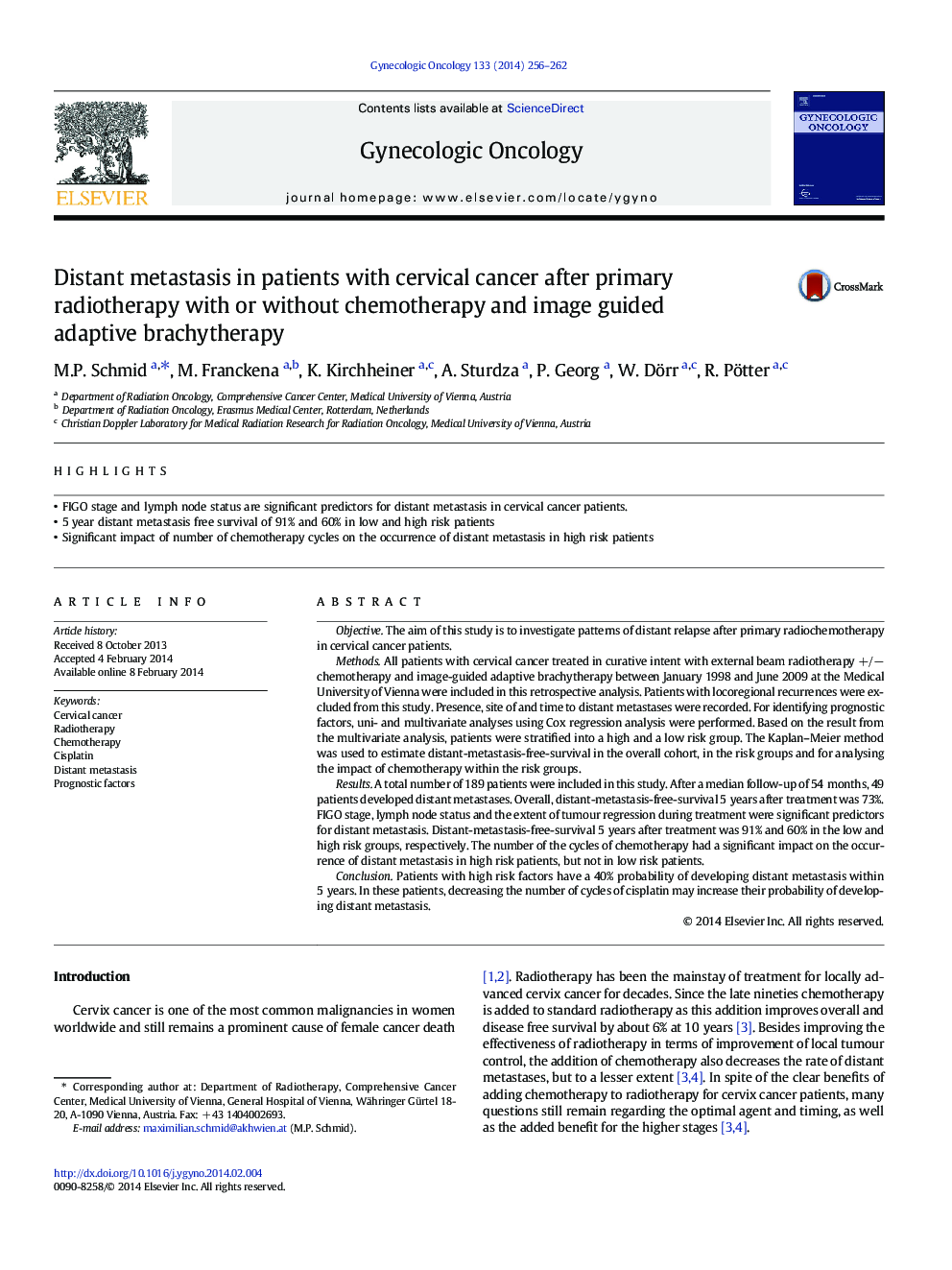| کد مقاله | کد نشریه | سال انتشار | مقاله انگلیسی | نسخه تمام متن |
|---|---|---|---|---|
| 6182729 | 1254032 | 2014 | 7 صفحه PDF | دانلود رایگان |
- FIGO stage and lymph node status are significant predictors for distant metastasis in cervical cancer patients.
- 5Â year distant metastasis free survival of 91% and 60% in low and high risk patients
- Significant impact of number of chemotherapy cycles on the occurrence of distant metastasis in high risk patients
ObjectiveThe aim of this study is to investigate patterns of distant relapse after primary radiochemotherapy in cervical cancer patients.MethodsAll patients with cervical cancer treated in curative intent with external beam radiotherapy +/â chemotherapy and image-guided adaptive brachytherapy between January 1998 and June 2009 at the Medical University of Vienna were included in this retrospective analysis. Patients with locoregional recurrences were excluded from this study. Presence, site of and time to distant metastases were recorded. For identifying prognostic factors, uni- and multivariate analyses using Cox regression analysis were performed. Based on the result from the multivariate analysis, patients were stratified into a high and a low risk group. The Kaplan-Meier method was used to estimate distant-metastasis-free-survival in the overall cohort, in the risk groups and for analysing the impact of chemotherapy within the risk groups.ResultsA total number of 189 patients were included in this study. After a median follow-up of 54Â months, 49 patients developed distant metastases. Overall, distant-metastasis-free-survival 5Â years after treatment was 73%. FIGO stage, lymph node status and the extent of tumour regression during treatment were significant predictors for distant metastasis. Distant-metastasis-free-survival 5Â years after treatment was 91% and 60% in the low and high risk groups, respectively. The number of the cycles of chemotherapy had a significant impact on the occurrence of distant metastasis in high risk patients, but not in low risk patients.ConclusionPatients with high risk factors have a 40% probability of developing distant metastasis within 5Â years. In these patients, decreasing the number of cycles of cisplatin may increase their probability of developing distant metastasis.
Journal: Gynecologic Oncology - Volume 133, Issue 2, May 2014, Pages 256-262
